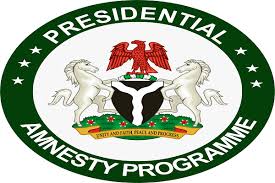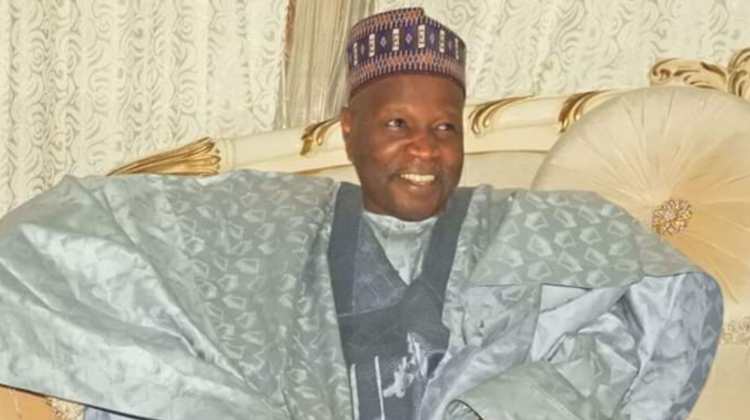Life is a sea of paradoxes, some of them pleasing and amusing; some are irritating, embarrassing and disappointing. But some are deeply puzzling.
For example, the paradox in President Goodluck Jonathan’s rather scathing debasement of journalists, dismissing them as very inconsequential purveyors of messages to the public, in preference to the actors in the Nollywood Film Industry, yet relying a hundred per cent on the same journalists to discharge their age-old traditional role of relaying this rather repugnant utterance to the public to achieve whatever desired political purpose, was a calculated embarrassment and a rather wicked defilement of the sanctity of history.
Hear the President: “It is only the Nollywood that government can partner with to redefine Nigeria. The people that can redefine the country and carry messages are the Nollywood people. No matter how hard the Ministry of Information and the Ministry of Culture, Tourism and National Orientation may try; if they like, they should be shouting on radio and television every day, it will not change the people.
But if the Nollywood takes it up, it will change the people. The Nollywood touches every Nigerian. So many bodies, even Mass Communication, the journalists and so on, so many women in the villages don’t know about what they do because it is almost for the elites. But to you (Nollywood members), you touch the children from a very young age to the oldest people. So, the Actors’ Guild is a body that we must really assist in any way possible.”
Jonathan describes the functions of journalists as too inconsequential compared to those of actors, yet he relies on journalists, not film actors, everyday to report his government’s activities to the nation and the world at large, from the elite in the city and those in the remotest locations, in various languages.
Jokingly or seriously expressed, this disparagement of the role and function of journalists by the president of a democratic society, where the Press occupies the historic position of the Fourth Estate of the Realm, is an affront not only to the journalists but also to history which has allotted that sacred role to them for the development and prosperity of every organised human society, a sacred role no leader of his status has so denigrated.
If that rather demeaning remark on journalists, clothed in ‘clownish’ amusement, was meant to be a joke, it had ended up ridiculing the lofty educational attainments and the reverence of the President, and exposed him to public scorn. If it was a serious matter-of-fact statement, it was most unfortunate when weighed on the scale of the assumed robust relationship between the president and the journalists.
Journalists had never expected the president’s political jokes to exceed the limits to the point of belittling the sacred role assigned to them by humanity compared to the role of entertainers who are not allotted any such task by history.
On the scale of needs of the organised human society, the journalism function and method of relaying messages are more essential than those in the film industry who thrive on make-believe. That is a universal truth that no one can change.
The new ‘engine oil’
The government machinery and the automobile have a lot in common. They are both contraptions meant to function perfectly, and speed smoothly and safely, but only if and when certain essential components in them are regularly checked, serviced and/or replaced.
For example, in the automobile, the engine oil has to be changed as regularly as necessary. To do otherwise is to court disaster – engine knock.
In government, the cabinet has to be reshuffled and replaced as soon as any kind of declining productivity affecting the operation of the machine is noticed in the aides of the leader. Any delay in the replacement of such aides may lead to the government machine malfunctioning or even grinding to a halt.
In the light of this, therefore, President Goodluck Jonathan’s recent replacement of 11 of his ministers with new ones is timely and praiseworthy. He has efficiently replaced ‘dead’ engine oil with new one with regards to the function the engine oil must perform for the government vehicle to function well and move with the desired speed and performance.
Publicly announced, whispered in the grapevine, or riskily inferred, each of most of the replaced ministers had some ‘wear and tear’ problem constituting a threat to the perfect functioning of the government machine according to how the president designed the vehicle to move, with a particular engine sound, velocity and when it should arrive at the destination.
For example, Jonathan had in September 2013 sacked 12 ministers that included Professor Ruqayyatu Rufai (Education); Professor Ita Okon Ekwa (Science and Technology); Ambassador Olugbenga Ashiru (Foreign Affairs); Hajiya Hadiza Mailafia (Environment); Dr. Shamsudeen Usman (National Planning); and Ama Pepple (Housing, Lands and Urban Development).
Others were Minister of State, Defence, Chief Olushola Obada; Minister of State, Agriculture, Alhaji Bukar Tijani; and Minister of State, Power, Zainab Kuchi.
He sacked most of them, according to some very sound inferences, for some administrative issues and political inconsistencies that posed grave threats to the perfect functioning of the machinery of his government.
The president replaced them with a new ‘engine oil’ in the form of another set of aides. He assigned each of the 11 new ministers portfolios shortly before the commencement of the weekly Federal Executive Council (FEC) meeting at the Council Chambers of Presidential Villa, Abuja, Wednesday, March 5, charging them to be the desired very good and safe engine oil for his government machine to function as desired.
The ministers sworn in are Senator Muhammadu Musiliu Obanikoro (Lagos), Minister of State Defence; Mohammed Wakil (Borno), Minister of State Power; Alhaji Abduljelili Adesiyan (Osun), Minister of Police Affairs; Ambassador Aminu Wali (Kano), Minister of Foreign Affairs; and Mrs Akon Eyakenyi (Akwa Ibom), Minister of Land and Housing. Others are Lawrencia Laraba Mallam (Kaduna), Minister of Environment; Hajiya Asabe Asmau Ahmed (Niger), Minister of State for Agriculture; retired General Aliyu Gusau (Zamfara), Minister of Defence; Mr. Boni Haruna (Adamawa), Minister of Youth Development; and Dr. Khaliru Alhassan (Sokoto), Minister of State for Health.
There is no gainsaying the fact that these new appointees are well chosen. As the president rightly said, they eminently qualified for the job. Nigerians through the president have done the best for them, it is now left for them to reciprocate the gesture by living up to their expectations.



